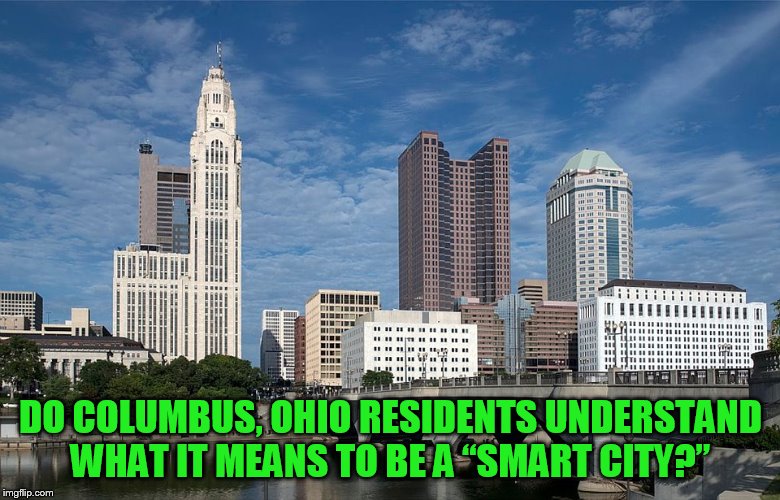 By B.N. Frank
By B.N. Frank
A 2018 survey revealed 66% of Americans did NOT want to live in “Smart Cities” due to privacy and security risks. Worldwide opposition to “Smart Cities” continues to increase due major cybersecurity, economic, privacy, safety, health and environmental risks (see 1, 2, 3, 4). In 2020, Toronto cancelled its “Smart City” plans due to public opposition (see 1, 2).
Despite warnings and risks, some U.S. cities have already become “Smart”. Legislators continue to promote funding this at the federal, state, and local level.
We may never know whether or not Columbus, Ohio residents ever “got behind” becoming a “Smart City”. Regardless, the city’s federal grant funding period is over.
From Smart Cities Dive:
At challenge’s conclusion, Smart Columbus to continue its work
Dive Brief:
- With its federal grant funding period now over, the Smart Columbus organization in Columbus, Ohio, announced Tuesday it will continue its work as a “collaborative innovation lab” to use technology to address societal problems in the region.
- Now, the city of Columbus will sustain several of the group’s initiatives that had been pioneered after winning the U.S. Department of Transportation’s (USDOT) inaugural Smart City Challenge. The projects slated to continue are multimodal trip-planning app Pivot; parking payment app ParkColumbus; smart mobility hubs; the connected vehicle environment; and the Smart Columbus operating system.
- Officials said Smart Columbus will now focus on ways technology can help benefit the region, including through mobility, sustainability and digitalization. Research from Ohio State University found the implementation of USDOT’s grant funding generated an estimated gross metropolitan product (GMP) of $173.39 million and generated or induced 2,366 jobs in the city and its surrounding area.
Dive Insight:
Columbus turned heads in 2016 when it beat out more than 70 other cities to win the challenge. In the years since, it has used the $50 million from the federal government and the Paul G. Allen Family Foundation — in addition to $19 million in cost-sharing from the city, state and county — for a wide variety of initiatives and pilot programs. Those have included autonomous shuttles as well as smart mobility hubs, which feature interactive kiosks, pick-up and drop-off points for ride-hailing vehicles and parking for bikes, scooters and more.
Smart Columbus also has pushed locals to adopt electric vehicles, led the charge on corporate decarbonization through its Smart Columbus Energy nonprofit and looked to educate visitors and residents about the future of the city at its Smart Columbus Experience Center.
Mandy Bishop, Smart Columbus program manager for the city of Columbus, said the city was ideally positioned to take advantage of the USDOT grant funding and put effective initiatives in place.
Activist Post reports regularly about “Smart Cities” and unsafe technology. For more information, visit our archives and the following websites:
- Americans for Responsible Technology
- Wireless Information Network
- Environmental Health Trust
- Physicians for Safe Technology
Become a Patron!
Or support us at SubscribeStar
Donate cryptocurrency HERE
Subscribe to Activist Post for truth, peace, and freedom news. Follow us on Telegram, SoMee, HIVE, Flote, Minds, MeWe, Twitter, Gab, Ruqqus and What Really Happened.
Provide, Protect and Profit from what’s coming! Get a free issue of Counter Markets today.

Be the first to comment on "“Smart City” Federal Grant Funding Period Has Ended in Columbus, Ohio. What Now?"